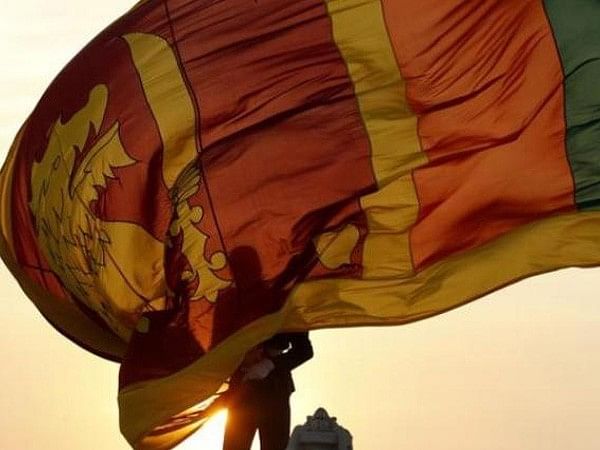Colombo [Sri Lanka], March 22 (ANI): Sri Lanka is battling one of its worst economic crises in over seven decades, as successive governments in the island nation have ignored sovereign bonds to Sri Lanka, with China being a major lender.
It has succumbed to Chinese foreign investment with the hope for better infrastructure, higher employment, income, economic stability, thereby increasing the standard of living of the common people. However, they ignored repeated warnings of China’s ulterior motives of keeping them indebted and dependent for years.
The country has foreign debt obligations of around USD 7 billion in 2022, including prepayment of bonds worth USD 1 billion in July 2021.
Sri Lanka found a “friend” in China after the war with LTTE. Footprints of China became visible in Sri Lanka with infrastructure projects like bridges, roads, railways, ports, airports, offers to develop special economic zones (SEZ), oil refineries, industrial towns, LNG power plants, etc.
However, the eclipse of domestic innovation made Sri Lankans mere spectators while the country remained more China dependent.
Despite huge Chinese investments in Sri Lanka for years, the country is reeling under one of the worst economic crises in its history with depleting forex reserves, huge foreign debt and debt servicing obligations. The crisis has now hit the nerves of the common man with a shortage of food, fertilizer, fuel, power and spiralling prices.
Apprehending the major political fallout of the current crisis, President Gotabaya Rajapaksa requested Chinese Foreign Minister Wang Yi during his visit to Sri Lanka in January this year to restructure debt repayments. Wang’s visit comes after China-Sri Lanka relations took a nosedive after a recent tussle over contaminated organic fertilizer dispatched to Sri Lanka.
China’s relatively closed and inward-looking investment model with low participation from Sri Lankans is a matter of concern. The current crises expose the inability of Chinese investments to generate sustainable employment and revenue generation in the island nation, thereby having little impact on the lives and livelihoods of the common people.
Further, Chinese investments failed to ensure enough forex inflows to equip the Sri Lankan exchequer to service its debts. Though China refutes these assessments, structural imbalance in bilateral trade, investment, rising debt and interest obligations are the hot subjects among the intelligentsia, media and even on the streets.
The Sri Lankan government under liberalization policy has tweaked their foreign investment policies to attract foreign investments since the 1980s.
China enjoyed liberal duty exemptions for the huge imports from China for infrastructure projects. The quantum of duty exemptions granted to China for years since the construction of Hambantota port (Nov 2010), to the reclamation of land (2020) for the Colombo Port City project can no way match the benefits accrued to the common people of Sri Lanka.
However, the quantum of benefits enjoyed by the political leaders of Sri Lanka is an open secret.
China successfully cultivated the Buddhist clergy and arranged lucrative trips to China to create public opinion in favour of Chinese investments and its footprints in Sri Lanka, despite China attempting to destroy Buddhism in China and forcing Tibetans to seek refuge in the neigbouring countries.
Loss of employment of local Sri Lankans due to implementation of Chinese investment projects solely through state-owned Chinese companies and deploying large numbers of Chinese experts and technicians are yet to attract the attention of public scrutiny.
The irony is that trade unions failed to raise sufficient voice for their claim on employment loss from these projects.
With the cancellation of joint venture agreements with Japan and India for the development of East Container Terminal (ECT) following trade union protests, China made another attempt by excluding Japan from the project, its largest development partner of Sri Lanka while media attention diverted to the Sri Lanka-India tussle on the issue.
Later the work on ECT was given to China Habour Engineering Company and its local partners Access Engineering of Sri Lanka. Rajapaksa blamed the former UNP government for leasing Hambantota port for 99 years to a Chinese company on its failure to repay the loan for the port project. However, the Rajapaksa government in May last year subsequently also passed Colombo Port City Commission (CPCC) bill granting major representation to Chinese experts/officials in its governing body.
It also ensured no Parliamentary scrutiny, revealing the deep influence of China on Rajapaksa.
The brewing of a deep sense of dissatisfaction amongst the Sri Lankans cannot be ruled out in view of the scant trickle-down effect of Chinese investment. Meanwhile, a Chinese company, CITS Overseas Economic Cooperation Co Ltd, financed the launching of a TikTok account for the Sri Lankan Embassy in Beijing recently, hoping to raise Sino-Sri Lanka relations to the next level.
China is keen to avert a Pakistan like situation in Sri Lanka. In Pakistan, large scale protests were organised by locals in Balochistan against CPEC with slogans like “Gwadar Ko Haq Do’ (give Gwadar its rights) as CPEC failed to give employment to locals.
Given the current crisis coupled with the absence of any assurances from China for concrete support, Sri Lanka seems to be reassessing the extent to which it can bank on China.
It is nearly impossible for Rajapaksas to deny China its committed space in Sri Lanka due to arbitration threats and likely obligations. It is an economic annexation of a sovereign country and not a debt trap alone.
However, Rajapaksas seem to be looking out for avenues to come out of China’s shadow in the pretext of balancing relations with major powers. (ANI)
This report is auto-generated from ANI news service. ThePrint holds no responsibility for its content.
